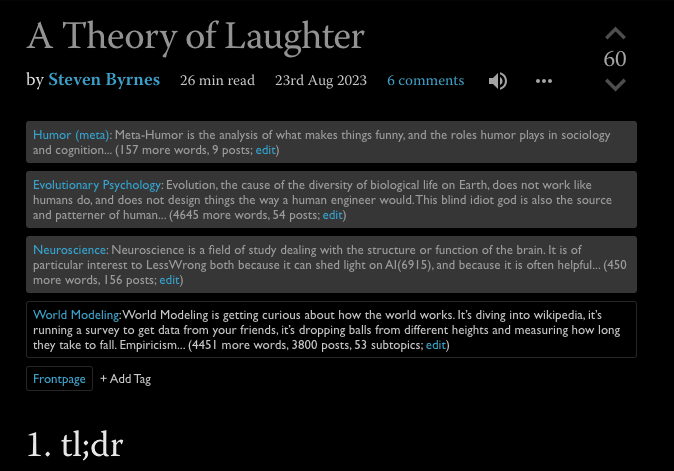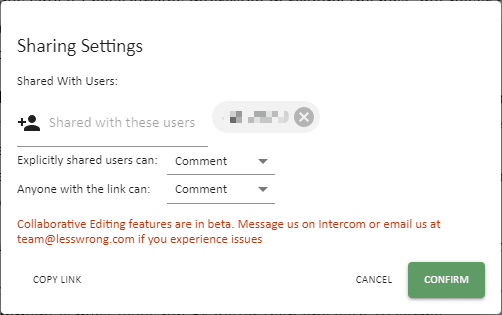The LessWrong wiki does not seem as well used as it should be. I guess this is a lack of editors.
@Vladimir_Nesov made a good point that many standard wiki-editing features are missing which makes the prospect unappealing.
The point is that absence of the feature makes engagement with the wiki less promising, as it becomes inconvenient and hence infeasible in practice to protect it in detail, and so less appealing to invest effort in it. I mentioned that as a hypothesis for explaining currently near-absent editor engagement
So in the spirit of this, what features would cause you personally to edit a lot more than you currently do?
I may try and pay some devs to write the pull requests if they seem feasible.









Beginning with the name, "Tags", I don't see this system as a wiki. I see it as a tags system whose main purpose is to surface related articles; and occasionally a tag has an explanation attached. Unfortunately, article surfacing doesn't work well because a) articles are tagged inconsistently[1]; and b) articles are sorted by how highly their tag is upvoted, which I find unintuitive behavior with unintuitive sorting results.
Anyway, if I look at the Tags system for a minute as if it was Wikipedia, here's what I see:
All this taken together means that, if I want to know what a concept like "Calibration" is, my first impulse is not to check the tags page, but to look for high-karma LW posts which answer this question. So I hardly ever read the contents of Tags pages.
Tagging of new and existing LW posts is an obvious candidate to benefit from AI assistance; I vaguely recall seeing someone already looking into that.
Addendum: Apparently parts of the old LW1.0 wiki were imported as untaggable "wiki" pages (basically just tags with an internal checkbox which prevents them from being associated with any posts). Example page.
These pages are not visible on the Concepts (All Tags) page, either, except for one link at the top which mentions this import process. The wiki pages can be found via the search, though. I'm not sure whether they can be reached or found anywhere, otherwise.
So that's one more point in favor of Tags being implemented almost entirely as a tags system, a... (read more)